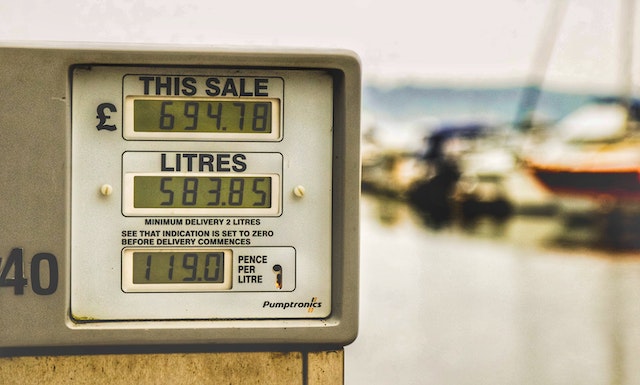The largest expense fleet managers must consider for effective fleet management is fuel. One can master this element by utilizing a fuel management system that makes use of telematics technology to offer insightful data on fuel usage and optimize it. Discover what a fuel management system is and how it can help your fleet business by reading more.
What Is A Fuel Management System?
A fuel management system consists of both software and physical components. Fleet managers can monitor, manage, and optimize fuel use with the goal of reducing expenses. Telematics systems are used by the hardware component of fuel management systems to transmit real-time vehicle data over telecommunications equipment.
On the other hand, the fleet’s fuel storage, supply, and consumption are all closely observed by the fuel management software, which receives this real-time data from the vehicles’ onboard detectors.
This system tracks a variety of data, collects information, displays expenses, and reduces fuel usage.
Benefits Of Fuel Management System:
A fuel management system has a number of advantages for businesses that use it. Here are a few significant benefits:
1. Cost Savings:
For businesses, fuel is frequently a major expense. By tracking consumption, spotting inefficiencies, and encouraging fuel-saving techniques, a fuel management system aids in the optimization of fuel use.
2. Enhanced Security And Control:
Fuel management systems frequently interface with fuel cards, guaranteeing that only authorized people may access and dispense fuel. This increases security and control. Improving security and control over gasoline supplies helps avoid fuel theft, unauthorized fuel use, and fraud.
3. Accurate Tracking And Reporting:
Fuel management systems track transactions, levels of stock, and fuel usage efficiently. They produce thorough analytics and reports that offer insightful information on cost distribution, fuel use habits, and regulatory compliance.
4. Regulatory Compliance:
A fuel management system aids in monitoring and disclosing data on fuel use and emissions, guaranteeing compliance with legal regulations. By doing this, the organization shows its dedication to environmental stewardship and lowers the possibility of fines or legal problems.
5. Maintenance Optimization:
Some fuel management systems integrate with systems for maintaining vehicles or other machinery, which improves maintenance. These devices can indicate maintenance requirements, such as recurring servicing or repair needs, by tracking fuel consumption patterns and engine performance.
6. Sustainability And Environmental Impact:
Fuel management systems encourage environmentally friendly practices by fostering fuel efficiency, cutting emissions, and promoting the use of alternative fuels.
7. Streamlined Operations:
Fuel management systems simplify work processes and lighten management loads through digital fuel tracking, inventory control, and reporting procedures. As a result, businesses may better manage their resources, streamline their processes, and focus on their main business procedures.
Fuel Management Policy:
An organization or government may develop a collection of rules, laws, and tactics known as a fuel management policy to efficiently manage and utilize its fuel resources. It strives to lessen the effects of fuel use on the environment and encourage energy efficiency while lowering the use of fuel.
Typically, a fuel management policy involves the following actions:
1. Efficiency And Conservation:
Promoting the efficient use of gasoline through procedures including routine vehicle maintenance, route planning, and driver education to reduce fuel consumption.
Promoting the use of alternative fuels, such as biofuels, natural gas, hydrogen, or electric power, to replace traditional fossil fuels.
2. Procurement And Supply Chain:
Creating rules for buying gasoline, such as choosing suppliers who practice environmental responsibility and taking into account aspects like fuel economy and emissions when choosing vehicles or equipment.
3. Incentives And Awareness:
Employers, stakeholders, and the general public are encouraged to adopt fuel-saving habits through incentives, informational campaigns, and awareness programs.
4. Compliance With Regulations:
Adhering to local, regional, and federal laws governing the use of fuel, emissions requirements, and environmental protection. This could entail carrying out pollution control technology, adhering to fuel efficiency regulations, or fulfilling certain emission limits.
5. Continuous Improvement:
Reviewing and revising the fuel management policy on a regular basis to take into account new technology, industry best practices, and developing environmental regulations.
What Is Fuel Management Software?
For businesses that depend on vehicles, machinery, or equipment that uses fuel, fuel management software is a computer-based program or system that is intended to simplify and optimize processes linked to fuel. It offers a centralized platform for managing, tracking, and keeping track of many elements of gasoline usage, including fuel inventory, consumption, buying, and reporting.
Conclusion:
Companies and transporters urgently need an effective fuel management system. Companies are being compelled to reconsider their operational strategies in order to reduce consumption and increase efficiency as gasoline costs reach new highs. Fuel efficiency can be managed with the help of fuel management systems.










